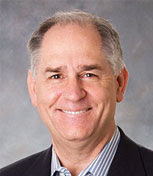Several years ago I severely injured my knee playing basketball and required 2 surgeries to fix it. Several months into post-surgery rehab, the therapist advised me to never have such complex surgery performed by those who do it infrequently. His advice was clear: ski resort surgeons fix knees every day and I should have gone there rather than have local doctors perform the surgeries.
This brings to mind a sure-fire laugh line when speaking to groups, that “50% of all doctors graduated in the bottom half of their classes”. The point is that the worst graduate is still called “doctor”, and this leads to a discussion about how easy it is to assume that all who do the same profession do it equally well.
We know this is true about supervisors based on team performance, turnover rates, grapevine talk, and other criteria. Yet few companies put extra support plans in place for supervisors who are not as talented as their peers. Clearly there are a bottom 20% or so who need structured coaching, team sharing sessions with peers, additional support when hiring, and other interventions that will help them perform better in the short term and build their skills over time…or identify them as supervisors who shouldn’t be supervising.
The primary obstacle to such a plan is that managers are reluctant to tell supervisors they need help. It’s easy to say new supervisors get different treatment because being new doesn’t imply being ineffective. But some supervisors are ineffective and they need structured help to improve.
Subscribe to:
Post Comments (Atom)



No comments:
Post a Comment